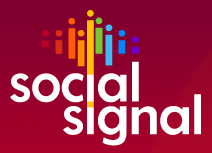How can the Internet support social change?
Social media offers exciting possibilities for social change, not just through support of explicitly political projects like MyBarackObama or MoveOn, but through the restructuring of personal relationships, social interactions and organizational dynamics. Nonprofits and social change leaders were some of the earliest adopters of social media because its ability to engage supporters mapped onto their focus on mobilizing and deepening supporter relationships. That's led to a range of innovations and experiences, from Flickr petitions to peer-to-peer fundraising to transnational mass advocacy.
But the social change potential of social media goes far beyond its use by political organizers, campaigners and NGOs. Individuals and organizations who use social media are subtly but profoundly transformed: in an atomized world, social media reconnects us to our communities, to one another, and to our own creative potential. From the most explicitly political online communities to the "frivolous" social networks that bring us back to our deeply social nature, social media is rewriting the rules for social change.
learn more
Can Web 2.0 save the world?
The coin is still in the air as to whether Web 2.0 remains a venue for freeform collaboration and creation, or succumbs to the drive to transform it into a rights-managed, closed-platform equivalent of cable TV with a mouse. But the potential is there. And I suspect the social web broadens the field of potential social innovators.
Change status: Facebooking and Twittering for a new world
Would you be a more effective agent for social, economic or political change if you could see the progress we're all making as a movement?Five ways to shape the soul of the Internet
As the Internet structures or touches more and more of lives, our relationship to it becomes a powerful expression of our personal and social values, and a crucial opportunity for both personal and social change.
NetSquared: Alex on social media and conversation as the engine of change
What social media does beautifully is enable large scale conversations across many dimensions—across huge distances, across gaps in time (through asynchronous communication), across personal differences. Those conversations are really key to enabling change. Our challenge is fostering conversations that build social capital.
Now downloadable: Hacktivism & The Future of Political Participation
What makes people participate online? Alex's 2004 Harvard dissertation tackled this question by looking at the phenomenon of hacktivism: political computer hacking. Hacktivism shed light on the motivations behind online political action -- by pointing out that they look a lot like the motivations for any kind of online participation.
OneWebDay makes issue of Net Neutrality front and center
Whether it's Vancouver or Beijing, daily life or Olympic bustle, unfettered access to the Internet is democracy's best friend.
Roundup: 50 suggestions for how President-elect Obama can use the Internet to govern
In this post I round up a cross-section of the most intriguing ideas for how the President-elect can evolve his Internet-savvy campaign into Internet-savvy government.The Elders harness online campaign tools for social change
Today there's a whole new set of tools that give regular citizens a role in advocating for human rights. Citizens don't have to wait to be invited into that role, nor do they have to find their way into a courtroom. They just have to pick up a cell phone, a camera, or a keyboard, and they can hold human rights violations accountable in the court of global public opinion.
What robots in popular culture tell us about our technology nightmares
Your Facebook profile page may not look a lot like Arnold Schwarzenegger, but it bears more than a metaphorical resemblance to the intelligent machines of our nightmares.
Work Smarter with Evernote

Get more out of Evernote with Alexandra Samuel's great new ebook, the first in the Harvard Business Press Work Smarter with Social Media series!

